Living with a disability, physical or mental, can be quite difficult in the Netherlands. There are over two million people in the country with a disability, including people with limited or no hearing or sight, and those with a physical or mental disability.
Many people with disabilities regularly experience a feeling of being excluded in Dutch society. This may be because they are unable to participate due to, for example, inaccessible entryway thresholds. Living with disabilities in the Netherlands can be hard.
There is also the case of private and public organisations failing to involve people with disabilities when organising special or everyday activities. This is usually because people think they are unable to participate in different activities that make up daily life.
The UN Disability Convention
What is the UN Convention on the Rights of Persons with Disabilities?
The UN Convention on the Rights of Persons with Disabilities and its Optional Protocol was adopted on 13 December 2006 at the United Nations Headquarters in New York and was opened for signature on 30 March 2007. There were 82 signatories to the Convention, 44 signatories to the Optional Protocol, and one ratification of the Convention.
The Convention applies to all types of disabilities that can restrict people from fully participating in society. This can involve physical, psychological, and intellectual disabilities. The treaty focuses on promoting participation and a more inclusive society. There are no new rights in the treaty but it does, however, further elaborate on the obligations that the government already has based on existing human rights treaties.
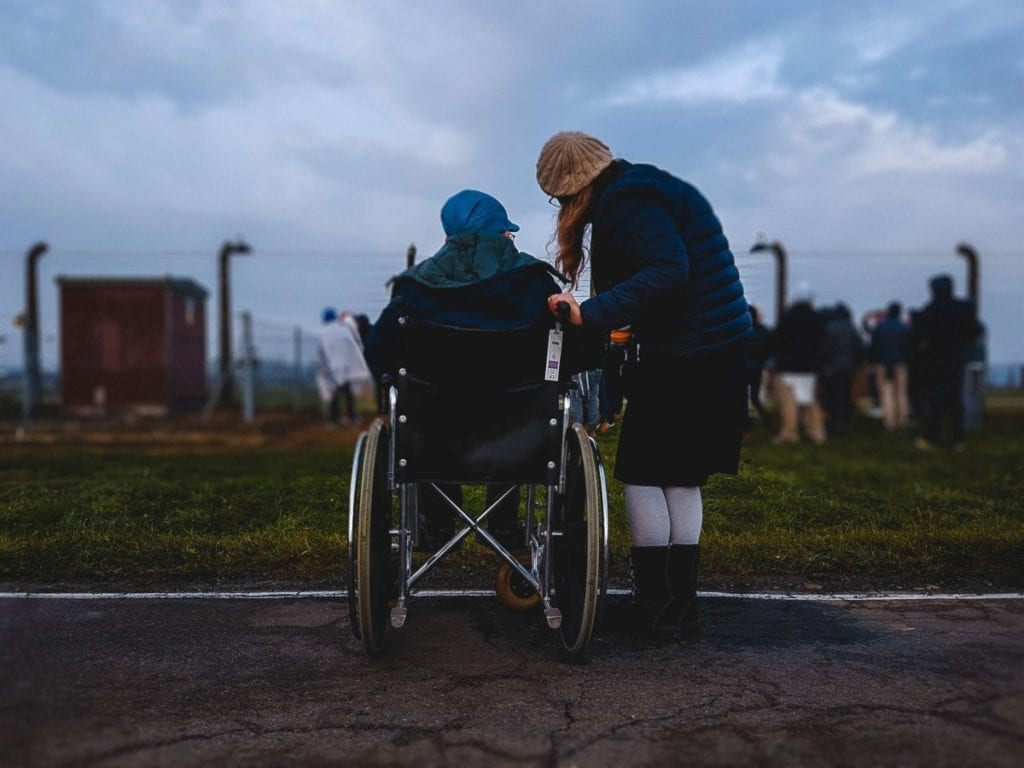
The Convention is intended as a human rights instrument with an explicit, social development dimension. It aims to protect the rights of persons with disabilities and reaffirms that persons with all types of disabilities must enjoy all human rights and fundamental freedoms.
It clarifies and qualifies how all categories of rights apply to persons with disabilities. The Convention also identifies areas where adaptations have to be made for persons with disabilities to effectively exercise their rights, where their rights have been violated, and where protection of rights must be reinforced.
The UN Disability Treaty in the Netherlands
The UN Disability Treaty was introduced in the Netherlands on July 14, 2016. The purpose of this treaty is to promote, protect, and safeguard the human rights of people with disabilities. Central concepts in the treaty are inclusion, personal autonomy and full participation.
The treaty specifies what the government must do to ensure that the position of people with disabilities improves. It stipulates, among other things, that people with disabilities have the right to live independently, go to school, use public transport and/or work, just like everyone else. The government (municipality, province, and central government) must ensure that this is well implemented.
The treaty also states that people with a disability must be able to make decisions independently. And that support must be available to them if they are unable to do so.
Who is responsible for implementing this treaty in the Netherlands?
The Ministry of Health, Welfare and Sport (VWS) is responsible for the implementation of the treaty. The Netherlands Institute for Human Rights, on the other hand, supervises the implementation of the treaty in the Netherlands.
The Institute investigates human rights violations or the level of protection of these rights. The Institute is also active on topics that concern people with disabilities: discrimination in the labour market, in education, at home, on public transportation, delivering of goods and services, engagement in sports, going out, insurance, etc.
The implementation of the treaty has ushered in some positive changes in Dutch society. The Dutch government have since put the civil and political rights from the UN disability treaty into practice. For example, the right not to be discriminated against and the right to easily access polling stations during voting season. There’s also the right to quality medical and sex care.
People with disabilities can also be lesbian, gay, bisexual, transgender, intersex, and/or queer (LGBTIQ+). The right to “sex care” and a sex life makes it very clear that every disabled citizen has a right to intimacy. A person’s appetite for sex doesn’t suddenly go away just because they are disabled.
UN Treaty Supervising Bodies
The Netherlands Institute for Human Rights monitors the Netherlands’ compliance with the treaty and how it has been put into practice since 14 July 2016 (implementation). As a supervisor, the Institute also looks at:
- Whether laws and policies meet the standards of the UN Convention;
- Which authorities are involved in the implementation of the treaty and how they perform this task;
- The situation of people with disabilities and whether Dutch society is becoming more inclusive.
There is also an international supervisor, which is a committee set up by the UN. The Netherlands must report to this committee every four years on their implementation of the treaty. The first report was in June 2018.
Making Dutch society more inclusive and accessible for people with disabilities
When the Netherlands ratified the UN Convention on the Rights of Persons with Disabilities in the summer of 2016, a wave of joy spread through the disabled community. The joy was also felt among parents and partners of people with disabilities. They felt that the long-awaited change had come, and the rights of people with disabilities would finally be respected and recognised.
The Netherlands was going to enforce equal opportunities for work, education, housing, voting, etc.
The introduction of the treaty brought hope.
Note: The Netherlands only ratified the treaty nine years after the signing. The House of Representatives had repeatedly urged the government on an implementation plan.
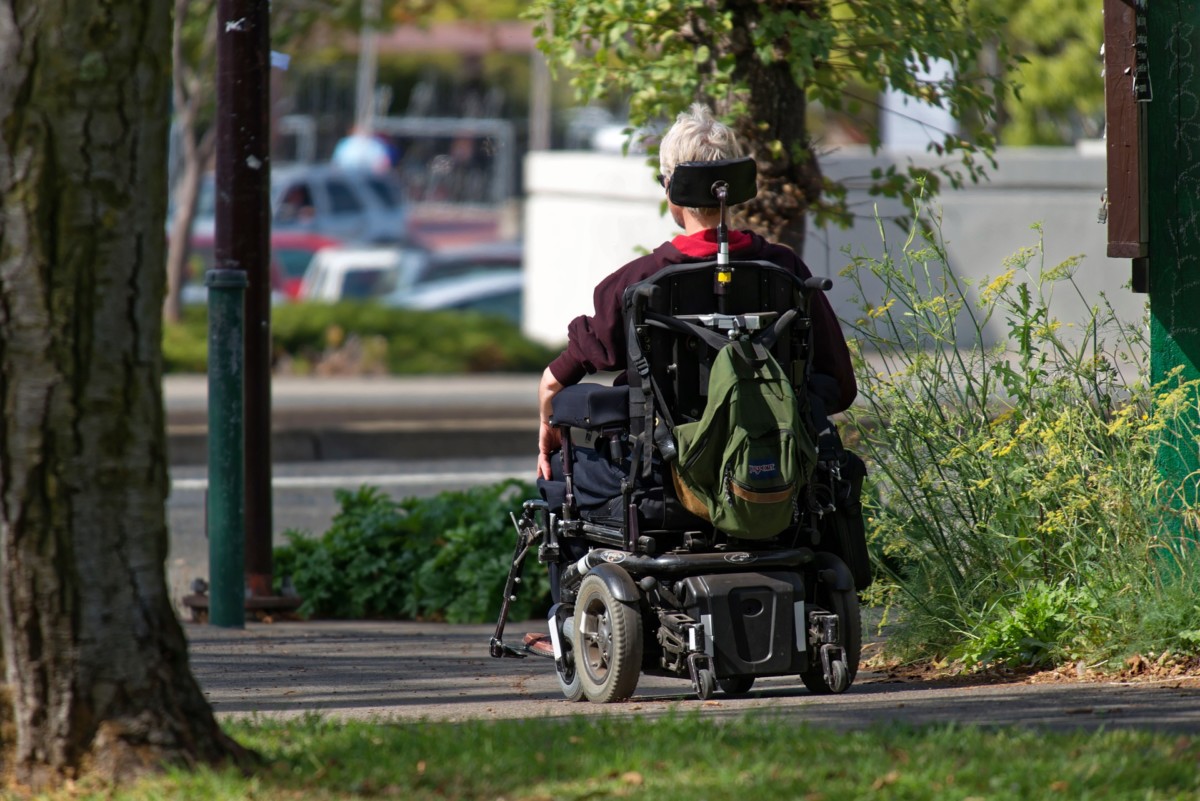
Inclusiveness in the Netherlands
Inclusion means that people with a disability fully participate in and belong to Dutch society. In an inclusive society, people with disabilities can do the same things as people without disabilities. For example, they can independently use public transportation and access polling stations and also decide for themselves where to live, work and attend school.
Some of us may think: “But the Netherlands is already inclusive. There are schools for special education, housing facilities for people with a disability, and there is travel assistance for people in wheelchairs travelling by train.”
But these are not examples of inclusion. In an inclusive society, there are no special facilities for people with disabilities. Special facilities usually mean that people with disabilities have to be assisted by someone. True inclusion means that all buildings and facilities are accessible to everyone and people with disabilities can use them independently.
For example: What if a disabled person wanted to go bowling? Or what if they wanted to play wheelchair basketball? How many wheelchair basketball courts do you have in your municipality? Or is a disabled person not allowed to want to play basketball? Inclusion must cover all areas of life; education, the labour market, public transportation, internet, sports, going out, etc.
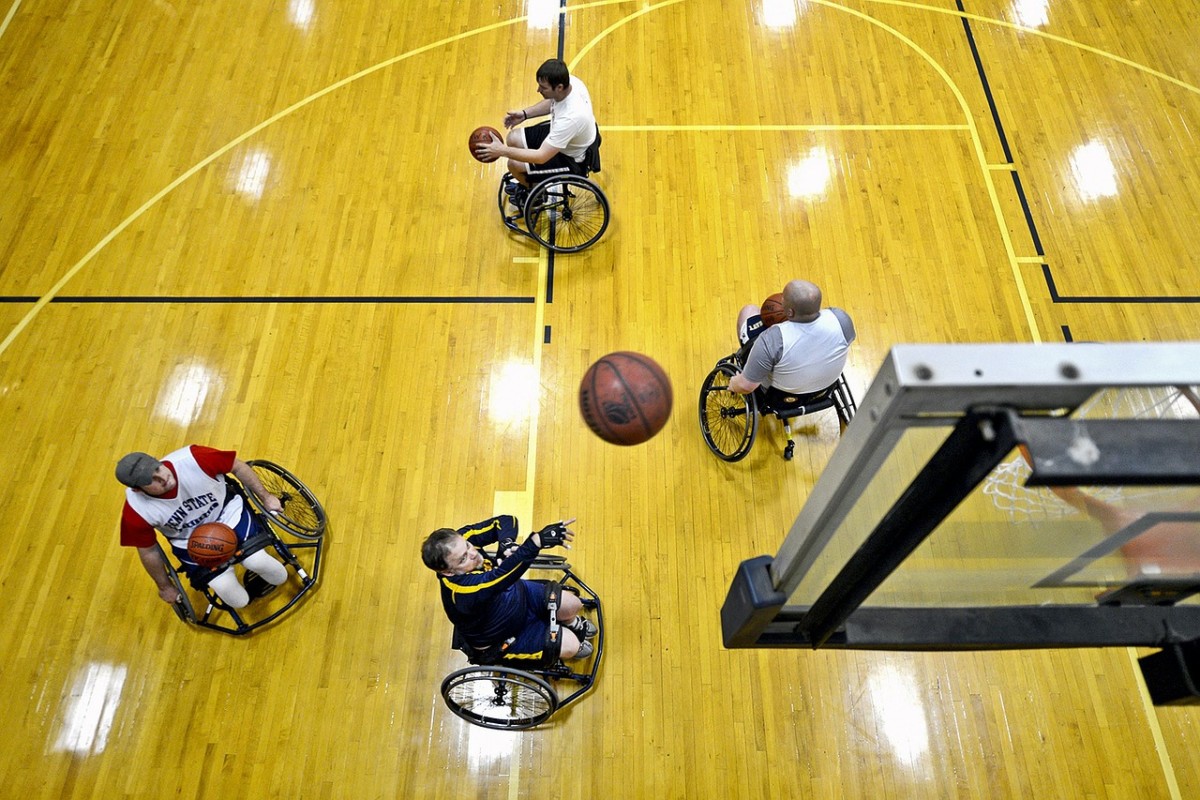
For the Netherlands to truly be inclusive, more changes need to take place. Changes such as making public transport and buildings accessible to people with disabilities.
While accessibility is good, true inclusion requires creating awareness. In the coming years, companies, as well as individuals, should automatically think about how they can contribute to an inclusive Dutch society when organising special events or everyday activities. It’s time we stopped making it look like it’s too much effort to include people with disabilities in our everyday plans.
People with disabilities often notice that others react uncomfortably or in an improper manner towards them. Many people underestimate what life with a disability means, and looking beyond a “visible” handicap is difficult for them.
There is much more behind a disability than just practical limitations. It is also about being able to enter into (and keep) relationships, function fully as a member of society, and/or not having to rely too heavily on your loved ones. The authorities have to work on building more understanding and ultimately better opportunities for people with disabilities.
For the implementation of the treaty to be a success, the authorities (and members of society) have to stop approaching people with a disability as burdens rather than as participating citizens. Also, the biggest changes should not just be in healthcare, but in the labour market and daily life, with employers and municipalities playing a big role.
How can the Netherlands become more inclusive for people with disabilities?
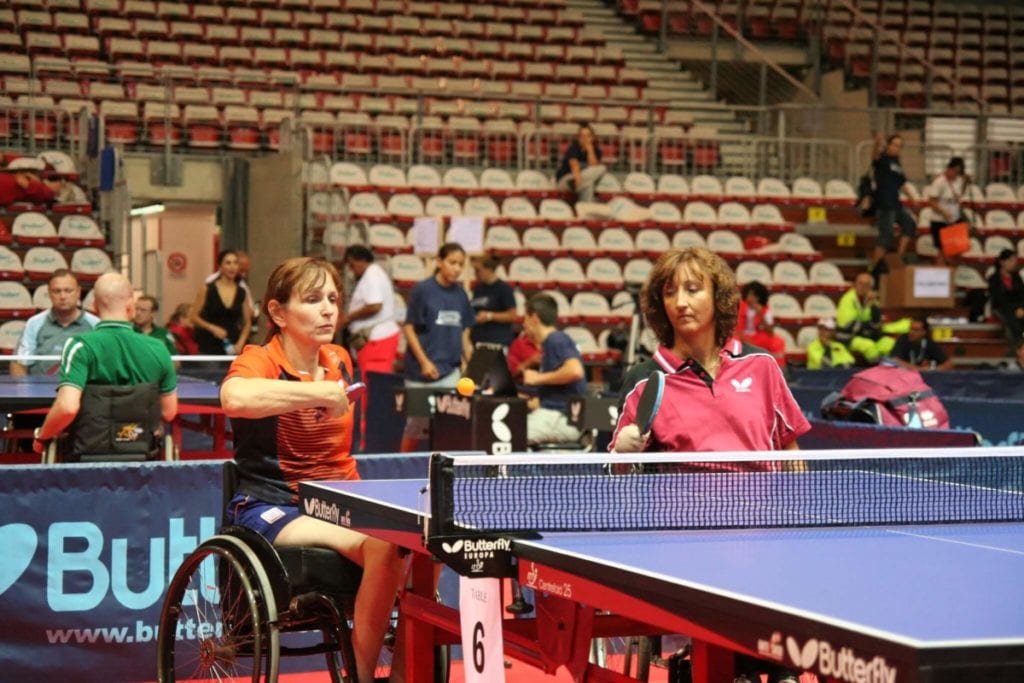
An inclusive education sector
Children with disabilities have the right to go to the same school as their brothers, sisters and friends without disabilities. That is what the UN Convention on the Rights of Persons with Disabilities clearly states.
A school that is open to everyone is inclusive. An inclusive school assumes that every child has unique talents and is welcome to develop those talents. The school adapts to the child and is therefore open to all. This is different from the current type of schools in the Netherlands, where the student must adapt to the school.
Inclusive municipalities
An inclusive society starts with “everyday people” in their municipalities. That is why municipalities have an important role to play in implementing the UN treaty.
But what is an inclusive municipality? This is a municipality where everyone feels welcome, with or without a disability. To ensure this, every municipality must make sure that all amenities, whether public or private, are accessible to everyone. For example, accessible buildings and sports clubs where everyone feels welcome.
Public and private bodies must work together with people with disabilities to find ways to make life better for them. They certainly have to be included in the conversation about what can be done better in their municipality.
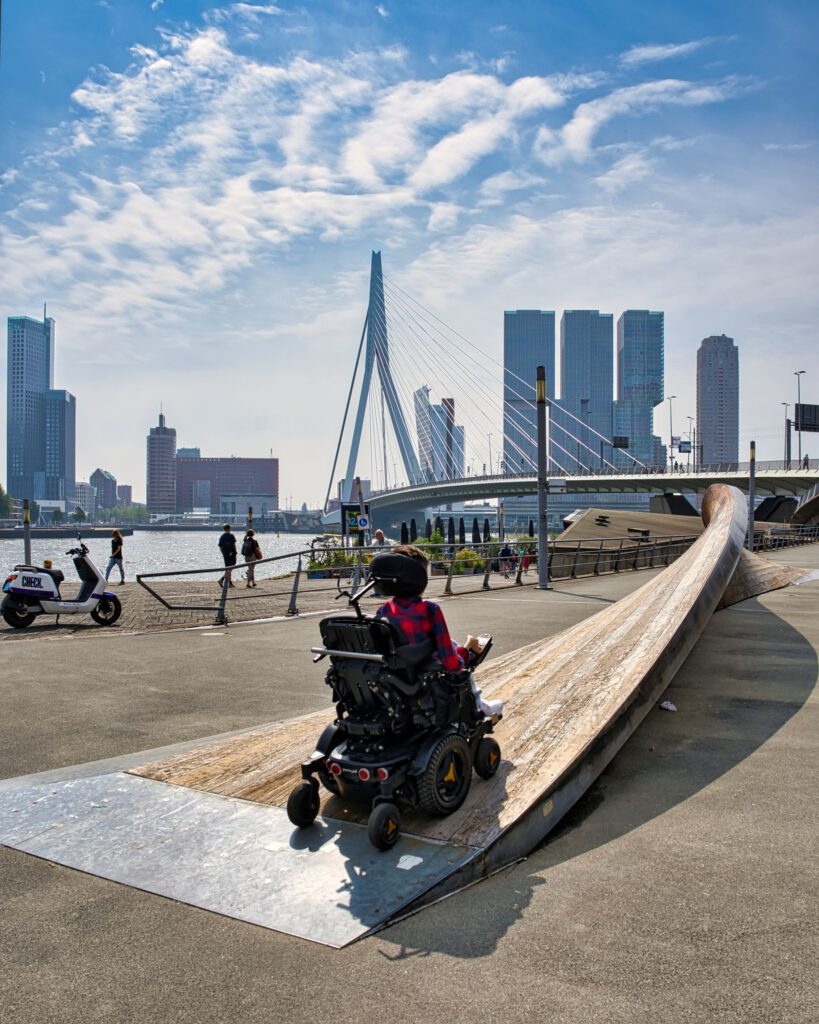
Freedom to choose one’s life direction
The freedom to choose one’s life direction means that everyone should have the right to make their own life decisions. For example, people should be able to decide for themselves where they want to live and with whom, where they want to go to school, whether they want to travel by bike, bus, or taxi and what time they want to go home after a party. They are entitled to support, but they also get to decide for themselves whether they want the support and who it should come from.
Full participation in the labour market: “equal dreams, equal opportunities”
An important part of participating in society is participation in the labour market. Since people with a disability often have difficulty finding a job, the Participation and Quota Act had to be created in the Netherlands.
People with disabilities have the right, like everyone else, to earn their own money with work that suits them. To be able to do their job as well as possible, they are entitled to resources. For example, a modified workplace, wheelchair-friendly spaces, special agencies and talent development training or a sign interpreter at meetings.
“Equal dreams start with equal opportunities. The Netherlands has more than two million people with one or more disabilities. Going to a café or the university can be pretty difficult for them due to an inaccessible threshold, the lack of lifts or denied access to a service dog,” said Martin van Rijn, at the Participating with a Disability Campagne in 2017.
“This initiative calls on all of us to put ourselves in the shoes of people with a disability. If you do that, you will see that small adjustments sometimes make a huge difference,” he added.
More and more employers must be encouraged to hire people with disabilities with support options, such as subsidies and other solutions that work. The government must also include people with disabilities in discussions surrounding finding realistic solutions to this problem of exclusion.
Accessible information
There is information everywhere around us, but much of that information is not accessible to everyone. For example, many people have difficulty understanding written texts. Others are deaf or hard of hearing and cannot follow the television or videos on the internet without subtitles. And others are blind and cannot read the menu in a restaurant.
According to the UN treaty, you should have the right to make decisions independently. But you do need adequate information to do that. Being able to “independently” make decisions means doing so without assistance from people around them.
For example, people with disabilities should be able to have access to information on all websites on the internet without help from people around them. Living with a disability can take a mental toll on people, and being totally independent can go a long way in helping people with disabilities cope mentally.
Physical accessibility
An example of physical accessibility is the accessibility of buildings. People in wheelchairs should be able to easily enter any building anywhere in the country. Blind people, for example, should be able to withdraw money from ATMs without assistance from people around them.
They should be able to go to the gym, strip/nightclubs, restaurants, school, etc, without help from others. Most people with disabilities find it difficult to move around their own houses. There is so much more that can be done in the Netherlands.
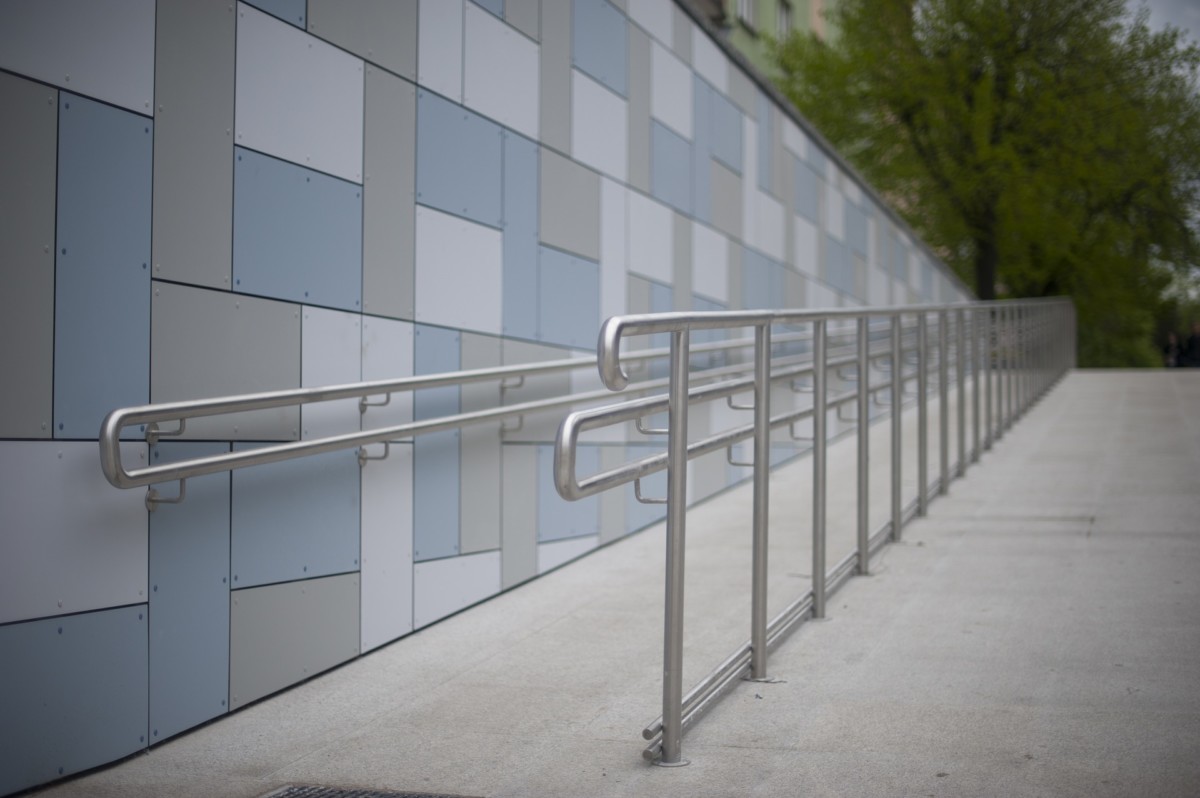
The right to sex and intimacy
People with disabilities have sexual feelings, desires, and need for intimacy — just like everyone else. The mentality that there is something wrong with a disabled person wanting to have a sex life or intimacy in their lives has to change.
Most people with disabilities are frustrated because they lack intimacy in their lives. Some also lack access to information on how to properly engage in sexual intercourse.
For example, people with intellectual disabilities may lag when it comes to knowledge about sex and sexuality. They have less access to general information sources such as books, TV, and the internet. It’s also possible that they may not understand the information received via these channels, and may have a distorted image of sex as a result. They also have limited opportunities to experiment with themselves and others.
People with disabilities may also find it difficult to express their wishes and feelings, even if they can speak. They are more vulnerable because most of them are dependent on others. Imagine a case where a man living with a disability is dependent on his (religious) family members, properly expressing his sexual feelings may not even be an option.
The two main factors that are huge obstacles to people with disabilities finding intimacy or having a sex life are religion and the mentality that people with disabilities don’t (or shouldn’t) have sexual desires. That mentality must change, and religion or no religion, people with disabilities are human beings who have a right to intimacy and sexual satisfaction.
Action Plan for more people with disabilities in Dutch politics
An estimated two million people with a disability live in the Netherlands, and only around 0.5% of them are political officeholders.
There is currently an ongoing movement in the Netherlands for there to be more people with disabilities in political and administrative functions. That is the purpose of the Action Plan that was launched in The Hague on July 4, 2019, during a meeting aimed at introducing more people with disabilities into Dutch politics.
The theme of the meeting: “Political officeholders with a disability: how do we facilitate the future” saw more than 150 participants with and without disabilities come together to discuss ideas and solutions. On June 17, 2019, 33-year-old Rick Brink from Hardenberg was elected the first-ever Minister of Disability Issues in the Netherlands.
Rick is in a wheelchair and has been active for years in municipal politics in Hardenberg. He has said that he is mainly committed to the integration of children with disabilities in Dutch society.
Furthermore, the Elections Act has also been amended. It now states that all polling stations in the Netherlands’ municipalities must be situated, furnished, and equipped in such a way that people with a physical disability can access them and vote independently. The intention is that in a few years, 100% of the polling stations will be accessible to people with disabilities.
2018 Report on the Committee on the Rights of Persons with Disabilities
The Netherlands Institute for Human Rights is the independent body responsible for monitoring the Netherland’s implementation of the UN Convention on the Rights of Persons with Disabilities. The Institute installed an advisory committee of persons with a disability that is involved in the monitoring process.
On 3 December 2018, on an international day for people with disabilities, the Institute issued its first report on the implementation of the UN Convention on the Rights of Persons with Disabilities in the Netherlands over the first two years. This report is addressed to the UN Committee as supervisor of the implementation of the treaty.
The latest report was submitted in December 2020.
The report shows that the Dutch government has taken steps to promote an inclusive society, but that the government must take better steps towards including people with disabilities in decision-making procedures.
Finally
People without disabilities tend not to think about how difficult life can be for people with disabilities. The world is changing at a very fast pace and while we are all enjoying the exceptional technological advances being made every day, we also have to make sure that people with disabilities are enjoying the same.
Whether it’s the latest tablet computers, mobile phones, or game consoles, people with disabilities also have to be as excited as the “crazy” iPhone fans camping in front of the Apple Store at the Leidseplein waiting for the shop to open so they can buy the latest iPhone. We have to make life as independent and enjoyable as we can for them.
To do this, extra attention has to be paid to them and their needs. That extra attention is needed to make Dutch society more inclusive. This isn’t just about making the Netherlands accessible to everyone, it’s about a change in the way of thinking within our society.
Disabled parking and the installation of lifts in every building aren’t the answer anymore. We need to think further than that. We need to find solutions in everyday life, in tech, education, sports, sex care, etc., for people with disabilities.
The mentality that disabled people are a burden to society must change. They are just like you and me: participating members of this society. All the privileges that we enjoy have to be accessible to them.
These privileges must be accessible to everyone, at whatever level they can handle, so that each citizen, disabled or not, can participate in everyday Dutch life. It is the only way we can truly become an inclusive society.
Are you living with a disability in the Netherlands? We would love to hear your thoughts on this. Tell us in the comments below!
Feature Image: Josh Appel/Unsplash
Editor’s Note: This article was originally published in October 2019, and was fully updated in August 2021 for your reading pleasure.

I have read your great comment on the issue of people with disabilities in Holland. I am the menager of such an organisation in Croatia and will be in Holland on this Thursday and Friday. I know that is very short notice but can you help me to get in touch with somebody related to this problem. I would like to visit such an organisation if possible.
Best regards,
Nevenka Fuchs
Hello Nevenka
I’m the Mother of a severe disable 22 years old girl living in the US, I will have to admit the US is not a bad country to live in with severe disabilities but isn’t easy either, I’m getting old and the choices for my daughter to go to when I’m not longer can be able to care for her are not good, Since she turned 21 she isn’t longer attending daycare or any adult day program because of her special needs so the State pays me to take care of her, Can you be so kind and explain to me what happened in Croatia with adults with special needs that their parents can’t take are of them? I’m a single mom and my daughter and I are also European citizens.
Thank you so much in advance
I am disabled I have (amputation in the left hand from above the elbow and I have have a left eye smell and a fracture in the left thigh )and a seat in the cup of the dough not the qaa any interest other than the attention they do like the other human who hua healthy two bodies
I am not sure how to get my disabilities taken seriously in the Netherlands, one part of it is people think the pandemic is over, but I do not ha e antibodies, even so I am 4 times vaccinated. I get remarks on wearing a face mask by strangers, sometimes aggressive. I FEEL EXCLUDED by society.
I.D your comment is interesting – I also get aggressive glaring when I wear a mask on the Amsterdam metro. I have been writing poems about it as a way of dealing with the fact I found this really disconcerting. I am shocked that people do this. They don’t know what is going on in our lives!
I am Mustafa Temizkan I am 72% orthopedically disabled I am a refugee in Erbil, Iraq The UN is not interested in me for sure I was sentenced as a Turkish politician The UN has not been interested for 24 months Contact e-mail: mu**********@gm***.com I would be glad if you are interested
Dear Sir/Ma,
I am writing to propose a project that aims to support disabled children in our community. As you may be aware, children with disabilities often face unique challenges and barriers that can impact their quality of life and opportunities for growth and development. It is imperative that we come together as a community to provide them with the necessary support and resources to help them thrive.
I am seeking your assistance in identifying and connecting with disabled children in our community who could benefit from our project. The project will focus on providing them with the necessary tools, resources, and support to help them overcome their challenges and reach their full potential. We will also work to raise awareness about the needs and rights of disabled children, and advocate for their inclusion and empowerment in our society.
Our project will include a range of activities and services, such as educational workshops, support groups, counseling, recreational opportunities, and access to assistive devices and equipment. We believe that by coming together as a community, we can make a real difference in the lives of these children and help them achieve their dreams.
I am confident that with your support and partnership, we can make a significant impact on the lives of disabled children in our community. I would greatly appreciate the opportunity to discuss this proposal further and explore how we can work together to make a positive difference.
Thank you for considering our proposal. I look forward to hearing from you soon.
Sincerely,
S.C Bless
Bless Foundation